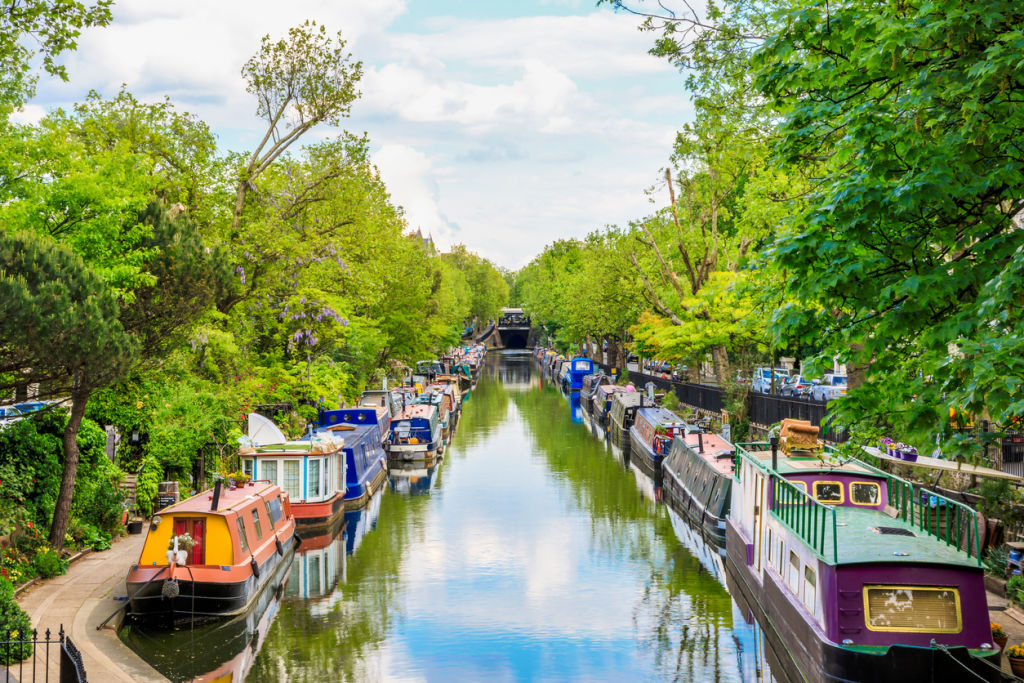‘Served my time’: Why living on a houseboat isn’t for everyone
When Sean Martin first mused about living on a houseboat, it was all a bit of fun.
It was one English summer and Martin was out at a pub in Peckham, south-east London, with a mate.
Over a round of drinks the friends chatted about life on the water.
More specifically, pondering how idyllic it would be on a houseboat on London’s canals.
Talk soon turned to more drinks and then a Gumtree search.
Of the boats for sale, there was one that appeared to be a ”large can” with an outboard motor attached to it.
Hazy curiosity got the better of the friends and they messaged the seller and an inspection was organised.

“It could only be described as grim,” Martin, an SEO editor with UK media group The Standard, wrote about the 70 foot, two bedroom vessel.
“An oxygen canister and stretcher in one room, ninja-style throwing stars in the living room, a sofa which was falling apart, and a loo – one of those camper van portable ones.”
Despite being disgusted by the state of the boat, the friends were not entirely deterred.
Returning to the pub, drinks consumed, the friends soon looked online at loans. They each secured the £12,000 ($24,000) share of the price within minutes.
Less than a week later, Martin and his friend – acting on the thrill of spontaneity – were living on the boat.
At first the novelty of canal life was everything they had hoped.
Martin had halved his rent in an instant. He was paying £800 ($1650) a month for a room in Dulwich and on the boat he was paying $820 a month in loan repayments.
As he noted, after three years he’d be rent free.
Yet, there were realities of houseboat life that were more than a little challenging.
The weather proved unbearable – both in the summer months and the depths of winter.
Martin will never forget sleeping in three jumpers, a sleeping bag and a duvet to keep warm.
In the warmer months, it wasn’t just the temperature that made things difficult.
Spring brought wildlife, in Martin’s case Coots. They had made a nest in the boat’s tyres.
“It is illegal to disturb a birds nest, which meant we couldn’t move the boat,” he wrote.
This put immense pressure on the flatmate’s water supply.

When the fresh water ran out they had to lug litres of water on board. Soon, the flatmates made a rule – no showers until they moved.
Instead, they would shower at their workplaces. Weekends proved tricky. Spirits took a dive.
Then there were the rats. Large ones. Martin would soon learn that rats scream at night as they rifled through the kitchen area of the boat.
The experience – which Martin detailed in a first-person piece for the media outlet – left him close to a breakdown.
Soon, Martin’s flatmate laid traps and the friends adopted a cat.
Martin promised to take on the job of emptying the boat’s toilet for a few months as a sign of appreciation.
After a few years, the pair eventually left houseboat life.
“We decided we had had enough. There were definitely elements of living on the canal which I loved – the summer months where you could have people over to drink on the roof, or while you moved the boat, or for no reason,” Martin wrote.
“But for the rest of it, I think I’ve served my time.”
We recommend
We thought you might like
States
Capital Cities
Capital Cities - Rentals
Popular Areas
Allhomes
More
- © 2025, CoStar Group Inc.










